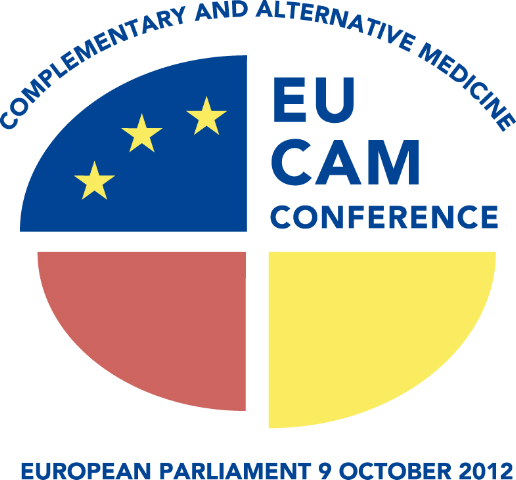Yesterday, the European Parliament heard fighting talk about complementary and alternative medicine (CAM). In a conference organised by EUROCAM, a network of European CAM patient organisations, medical doctors practicing CAM and trained CAM practitioners, hosts and Members of the European Parliament (MEPs) Elena Antonescu (EPP, Romania), Sirpa Pietikaïnen (EPP, Finland) and Alojz Peterle (EPP, Slovenia) made it quite clear that it was time for CAM to be placed firmly on the European Union’s (EU’s) agenda. The recurring theme was that plenty of evidence exists for the effectiveness of CAM, it is cost effective, it is comparatively safe – and citizens want access to it. Over 100 million European citizens, after all, are known to use it.
Speakers
High profile speakers at the conference included:
- Andrew Long (Professor of Health Systems Research, University of Leeds, United Kingdom)
- Erik Baars (Professor of Anthroposophic Healthcare, University of Applied Sciences, Leiden, the Netherlands)
- Dominik Irnich (Head of Multidisciplinary Pain Centre, Department of Anaesthesiology, University of Munich, Germany)
- Gustav Dobos (Professor of Internal Medicine, Chair of Complementary and Integrative Medicine, University of Duisburg-Essen, Germany)
- Claudia Witt (Professor of Medicine, Institute of Social Medicine, Epidemiology, and Health Economics, Charité University, Berlin, Germany)
- Simona Dragan (Professor of Preventive Cardiology and Rehabilitation, Victor Babes University of Medicine and Pharmacy, Timisoara, Romania)
- Helle Johannessen (Professor of Social Studies in Health and Medicine, Institute of Public Health, Faculty of Health Sciences, University of Southern Denmark, Denmark)
- Wolfgang Weidenhammer (CAMbrella project leader, Centre for Complementary Medicine Research at the University Hospital ‘Rechts der Isar’ of the Technical University of Munich, Germany)
- Torkel Falkenberg (Associate Professor of Health Care Research, Research Constellation Leader - Integrative Health Care, Karolinska Institute, and Director, The Integrative Care Science Center, Sweden)
The inspiring information provided during the course of the day could not have been more at odds with the anti-CAM that have emanated from Edzard Ernst – the now retired Professor of Complementary Medicine at Exeter University, UK – for nearly the last two decades. With even greater glee than during his tenure at Exeter University, Ernst continues his CAM-bashing activities via his Twitter account, appealing particularly to anti-CAM skeptics. Such CAM bashing does not, to us, represent any objective evaluation of the available research and clinical evidence, or any impartial research attempt to compare conventional with alternative methods in usual care situations. Rather, it appears more the product of a given ideology that is opposed to the very principle of CAM. As such, it contributes nothing to the far more serious debate of how humans will cope with the chronic disease crisis, which will only increase in intensity if drug-based conventional treatments remain the predominant management approach.
Common themes
Many of the speakers stressed the dramatic differences between CAM and pharmacological-based medicine. In contrast to drug-based approaches, CAM deals with the whole person and works primarily to stimulate the self-healing ability in humans, as opposed to generally treating only the symptoms of disease.
The speakers often returned to the notion that the chronic disease burden, combined with the increasingly top-heavy age structures of populations, means there has never been a more relevant time for CAM modalities. Their reasoning was straightforward: CAM methods are generally multi-faceted and facilitate a shift to healthier diets and lifestyles, along with greater self-responsibility and personal empowerment as compared with conventional approaches.
Recognition of CAM role by governments is needed urgently
Sirpa Pietikaïnen MEP indicated that CAM, “Remains largely undercover in the EU”. Alojz Peterle commented that, “CAM is playing an largely unrecognised role in public health. It is recognised by citizens, people use it and they like it, but scarcely by governments”.
In an impassioned speech, Monika Kosinska, Secreatary General for the European Public Health Alliance (EPHA), convenor of the conference, said: “What you have with CAM is gold dust. Look at what you offer: patient empowerment, lower costs in healthcare and longer lives." Along with a number of other speakers, Ms Kosinska suggested that the days of drug-based healthcare are likely to be numbered. The pharmaceutical industry is in crisis, Europe is in crisis, and the healthcare burden is caused largely by preventable, chronic diseases that are associated with poor diets and lifestyles, along with excessive psycho-social stress.
Wolfgang Weidenhammer PhD, from the Centre of Complementary Medicine Research at the University Hospital Rechts der Isar, of the Technical University of Munich, Germany, is also the head of the first EU-funded, collaborative research project for CAM, CAMbrella. He outlined the work that took place over the course of the 3-year project, which is due to complete at the end of 2012. The goal for the project was not to undertake new research but rather to create a roadmap for future research. Detailed results of the CAMbrella project will be released at a conference in Brussels on 29th November.
EUROCAM Plea
EUROCAM issued a call to action at the end of the conference – which is fully endorsed by ANH-Intl.
Among EUROCAM’s calls to action were:
- Promotion of equitable access to CAM by EU citizens
- Inclusion of CAM in all possible Community Actions dealing with health education and promotion, prevention and treatment of chronic disease, health inequalities and active and healthy ageing
- Encouraging EU Member States to explore ways in which CAM can contribute to sustainable healthcare systems in Europe
- To encourage the European Parliament to pressurise the European Commission to propose an independent and adequate system for the regulation of traditional systems of medicine, in line with the European Commission’s experience report of 2008.
Note: Speaker presentations from this inaugural EUROCAM conference will be uploaded by the conference organisers imminently, and this article will include a link as soon as it is available. We will also include a link to EUROCAM’s full call to action once available.
ANH Health Choice campaign page








Comments
your voice counts
11 October 2012 at 11:12 am
Ernst and his CAM bashing cronies may yet be exposed as the scientific frauds they are.
11 October 2012 at 11:52 am
Homoeopathy is a very effective means of cure for disease. It works best on children, animals and plants so is not a placebo.
Your voice counts
We welcome your comments and are very interested in your point of view, but we ask that you keep them relevant to the article, that they be civil and without commercial links. All comments are moderated prior to being published. We reserve the right to edit or not publish comments that we consider abusive or offensive.
There is extra content here from a third party provider. You will be unable to see this content unless you agree to allow Content Cookies. Cookie Preferences